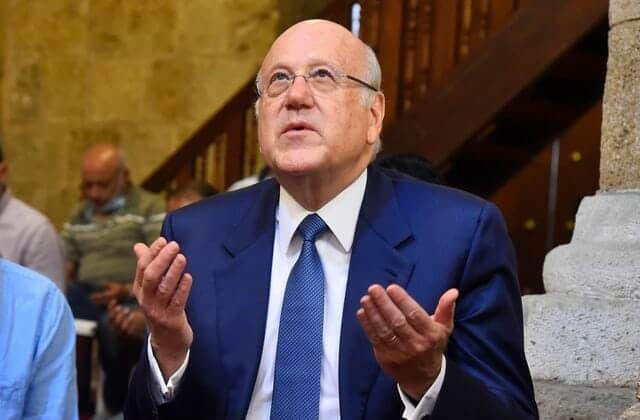If the Lebanese were expecting a measure of relief from the new Mikati government, they were badly disappointed. The government hiked the price of gasoline, cutting a subsidy that Prime Minister has said the country cannot afford.
The new government has also signed a new contract with restructuring consultancy Alvarez & Marsal (A&M) to carry out a forensic audit of the central bank, a step sought by donors who want to see Beirut enact reforms to unlock badly needed aid.
The government has promised action to address the crisis, including talks with the International Monetary Fund (IMF) and a start to reforms.
IMF spokesman Gerry Rice said on Thursday there had been courtesy calls with members of the new government and the Fund stood ready to engage in the period ahead. Talks between the previous government and the IMF broke down last year. The World Bank says Lebanon’s economic crisis is one of the worst on record.
The currency has slumped more than 90% since 2019, more than three quarters of the population have been driven into poverty, the banking system is paralyzed and a hard currency crunch has led to shortages of vital imports, including fuel.
Lebanon has been suppressing fuel prices by providing dollars at subsidized exchange rates well below the pound’s price on the parallel market, with the stated aim of shielding people hit by the currency’s collapse.
Critics say the system has given rise to smuggling and hoarding, contributing to shortages that have crippled normal life and spawned a black market where gasoline has been sold at enormously inflated prices.
Fuel prices issued on Friday raised the gasoline price by more than 37% with immediate effect.
“This is the stage before last of lifting the subsidy,” said Georges Braks, a member of the Petrol Station Owners’ syndicate, who expects the subsidy to be removed by the end of September.
He said the new prices were based on an exchange rate around 12,000 pounds per dollar.
This compares with a rate of 8,000 pounds per dollar that the previous government agreed for fuel prices last month, but is still below the rate on the parallel market, where dollars were changing hands at 14,600 on Friday.

